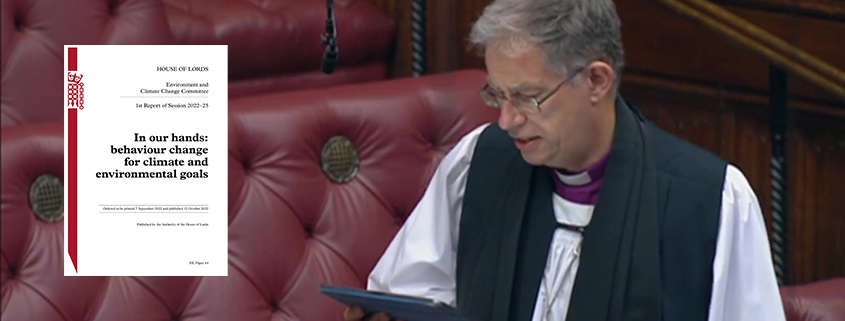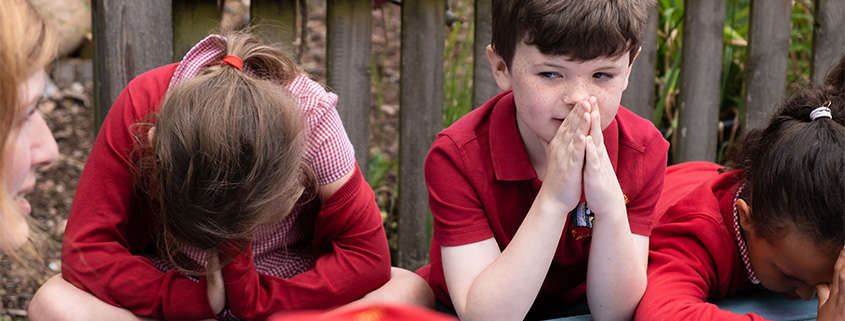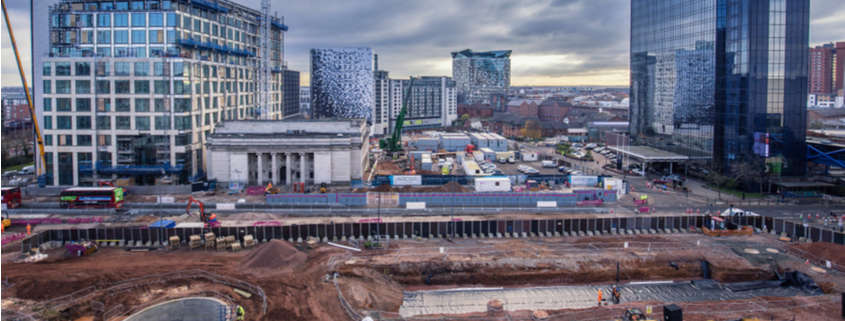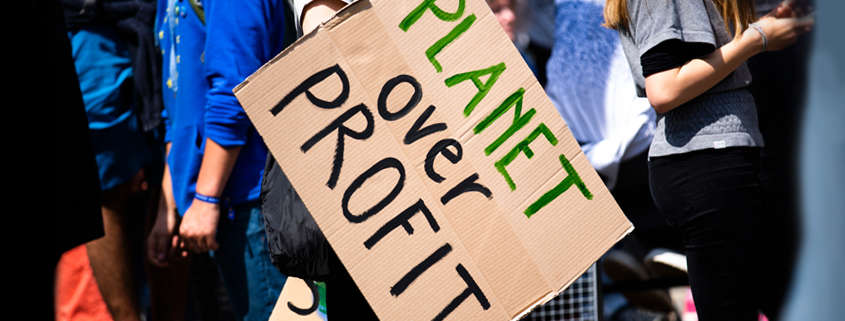The Bishop of Oxford, raises concern about online harms, powers, and disinformation in the second reading of the Online Harms Bill in the House of Lords.
The Lord Bishop of Oxford to ask Her Majesty’s Government what steps they will take to support behaviour change as part of the pathway to net zero emissions. Read his full speech given in the House of Lords on 20 November 2022.
My Lords
I appreciated the time given to this debate. We face many challenging issues but none is more serious than climate change and the environmental crisis. The context of our debate is the real prospect of global heating of more than 1.5 degrees by the middle of the century with escalating extreme weather events in the UK and across the world; rising sea levels; devastating fires and floods; significant loss of life and damage to infrastructure; wars over scarce resources; shifting patterns of harvest; increasing zoonotic diseases and a massive displacement of peoples as large parts of the earth become uninhabitable.
At the same time, the green economy offers genuine prospects for economic growth and diversity and the opportunity for global leadership. It is a privilege to be a member of your Lordships Select Committee on the Environment and Climate Change under the able leadership of Baroness Parminter. Last week we published our first major report: In our hands: behaviour change for climate and environmental goals which I commend to the House. My questions to the government are largely based on the report’s findings.
To avert disaster in our lifetimes we need to reach net zero by 2050 or before. That means radical action in this decade and the next. The Committee agreed with the Committee for Climate Change that behaviour change is a key element in that journey: both the adoption of new technology and changing habits and practices around diet, transport, heating and consumption. Each of these behaviour changes has co-benefits. All of them have potential economic benefits. They are essential stepping stones on the path to net zero.
This government has given imaginative and committed leadership in the area of climate and the environment including at COP 26 through the COP President and in the recent Environment Bill. The government has acknowledged the need for behaviour change across the board: we all must play our part. It is good to see government commitments to behavour change summarised in the library briefing for this debate. To give just one example, the noble Lord the minister said in your Lordships house in September 2021:
“The government wanted to make it easier and more affordable for people to shift towards a more sustainable lifestyle while at the same time maintain freedom of choice and fairness’.
The Committee takes a similar view. We know that the public is looking for stronger leadership from the government in this area. 85% of the public are concerned or very concerned about climate change – double the number from 2016.
But the Committee found a very significant gap between what the government wants to do and the leadership which is being offered. There is a very significant gap in understanding the challenge from department to department. There is too little joined up thinking and policy. There are quick wins which are not being adopted. There are massive areas for development and leadership – particularly domestic heating which is the subject of our next enquiry. The leadership and committee structures are opaque. There is a lack of expertise and knowledge across government. There has been no real attempt at public information and engagement campaigns. The leadership debate over the summer has raised real questions around the new governments commitment to net zero which are being worked through even this week in the other place.
The report offers a set of recommendations to government in this area of leadership. Other speakers will no have other questions to the minister. Could I ask for reassurance that the government will take these concerns seriously and will put real energy and creativity around the process of supporting behaviour change into the future and as a matter of great urgency.
The Bishop of Oxford spoke in the debate on the Scrutiny Committee Report in the House of Lords on 25 Mary 2022.
The Bishop of Oxford spoke in a Second Reading of the Schools Bill in the House of Lords on Monday 23 May. Read the full text of his speech or watch on Bishop Steven’s Facebook page.
A debate on 11 May 2022 on the Queen’s Speech following the State Opening of Parliament considering the upcoming Levelling Up and Regeneration Bill.
Words can be an immense blessing but, when amplified through social media, also weapons of mass destruction to people and societies.
The Age Assurance (Minimum Standards) Bill
The Age Assurance (Minimum Standards) Bill had its second reading in the House of Lords on Friday 19 November. The Bishop of Oxford spoke in support of the bill. Read the text of his speech, or watch on Bishop Steven’s Facebook page.
My Lords, it is a real pleasure to follow the noble Lord, Lord Russell, and indeed every other noble Lord who has spoken in this debate. It has been extraordinary and very moving. I join other noble Lords in congratulating the noble Baroness, Lady Kidron, on securing this Second Reading and on her passionate and brilliant opening speech. With others, I thank and commend her for her tireless commitment to protecting children online. That she does so with such consistent grace and good humour, against the backdrop of glacially slow progress and revelations about both the variety and scale of harms to children, is no small achievement in itself.
One of my interests in this debate is the more than 280 church schools and the more than 50,000 children who are a precious part of my diocese of Oxford. A substantial proportion are at significant risk for want of this Bill. The primary responsibility of the Government is the protection of all their citizens and especially and particularly those unable to protect themselves. Future generations will, I think, look back on the first two decades of this century and our unregulated use of technology with deep pain and regret, as they reflect on the ways in which children are exposed to harmful material online, the damage which has followed, and will follow, and our tardiness in setting effective regulation in place. We will be judged in a similar way to those who exploited child labour in past generations.
Children are precious to God and to society, not as potential adults nor in the future tense but simply and completely in themselves. Each is of immense value. The evidence is clear that many are emerging from a digital childhood wounded and scarred in ways which are tragic but entirely preventable.
The Government make much of being pro-business in support of the emerging technologies of this fourth industrial revolution but, if they are equally serious about making the UK a safe country to be online, they really must do more to be pro-business in ways that protect children. Other noble Lords have movingly pointed out the many risks our children face whenever they venture online.
We now know with increasing certainty how it is not only other users, so-called bad actors, but many online service providers themselves—not least Facebook, or now Meta—that target children, their data extracted, their identities manipulated, their impulses exploited. It should be noted that many of these same service providers say they would welcome clear guidance and regulation from the Government, even while other businesses say they already possess the tools and opportunities to do this both safely and profitably.
The age-appropriate design code is a welcome and genuinely world-leading innovation, and the Government would do well to note—against the siren voices denying technical feasibility or fearing the balkanisation of the internet—that businesses, the service providers, have now found it easier to standardise their processes to the highest regulatory watermark globally in the interests of reducing costs and complexity. This bodes well for the principle-based and proportional approach to age verification that the Bill artfully encapsulates.
As others have asked, what possible reason can there be for further delay? If protecting children is good in and of itself; if business publicly expresses the need for clearer guidance on how to frame that protection; when business itself sees commercial opportunity in the tools for protection; when a regulator is now waiting in the wings; after government delay already threatens a lost generation—why is the Bill from the noble Baroness, Lady Kidron, not being eagerly and urgently adopted by the Government themselves, if that is indeed the case? I hope we will hear good news today. I eagerly await the Minister’s answer.
Further reading
- House of Lords library: Age Assurance (Minimum Standards) Bill [HL]
- The report But how do they know it is a child? published by the 5Rights Foundation, is an important contribution to the ongoing debate on age verification, estimation and assurance.
Watch Bishop Steven’s speech on his Facebook page
https://www.facebook.com/bishopofoxford/videos/337817904816379/
With 63% of payroll jobs lost during the pandemic being held by under-25s, young people must have access to adequate training going forward.
As the Environment Bill is read in the House of Lords, Bishop Steven urges the government to set an example on climate change policy.
The Online Safety bill is a major step forward in preventing harm to children and vulnerable adults. But legislation is needed urgently.










